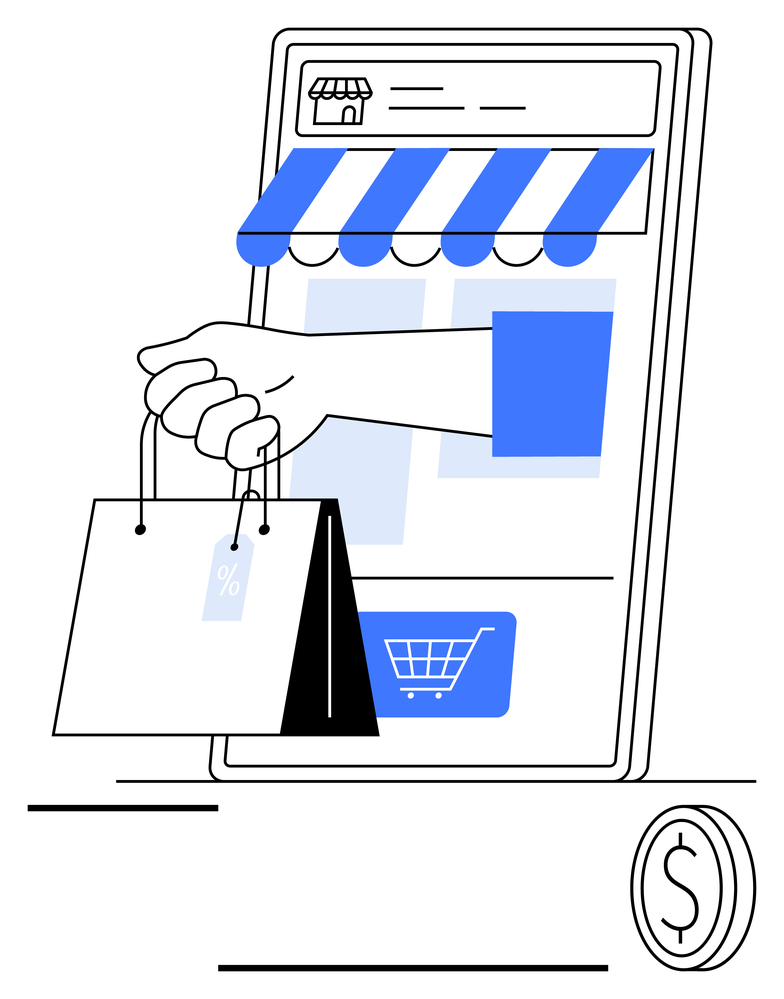Social commerce is their first purchase touchpoint
For Gen Z, social media are no longer just entertainment spaces—they have become genuine discovery and shopping platforms. According to Shopify, 80% of this generation uses social channels like Instagram, TikTok, and YouTube to find inspiration and discover new products. Moreover, about 37% have purchased something after seeing a review from a trusted influencer, and 43% have already used in-app shopping features like Instagram Shopping or TikTok Shop.
Sustainability and ethical values guide purchase decisions
It’s no longer enough for a brand to offer a good product: Gen Z wants to understand what’s behind it. Data from Shopify, confirmed by the Deloitte report, show that 62% of Gen Z consumers prefer buying from sustainable brands, while as many as 73% are willing to pay a premium for ethical and low‑impact products. In Italy, this awareness translates into steady growth in the second‑hand economy, especially among Gen Z and Millennials.
Mobile is their preferred purchase channel
Gen Z is mobile‑first. According to Shopify, about 74% of this generation uses smartphones to browse and shop online. They also expect a fast and seamless shopping experience, with smart payment options like digital wallets (Google Pay, Apple Pay) or prepaid cards. Slow checkouts or pages not optimized for mobile often result in cart abandonment.
Interest in digital products and services is rising
For Gen Z, consumption isn’t just physical—it’s increasingly digital. A Shopify report indicates that a growing share of personal spending is dedicated to apps, gaming, streaming content, online courses, and virtual products. This is a trend accelerating into new experiences tied to the metaverse and artificial intelligence.
Authenticity and engagement outweigh advertising
Gen Z rejects overly polished or impersonal advertising. According to the Deloitte Global Gen Z & Millennial Survey 2025, this generation seeks authentic storytelling, direct brand relationships, and personalized content. It’s no coincidence that micro‑influencer collaborations are far more effective than remote celebrity endorsements. One‑to‑one communication on channels like WhatsApp, personalized email marketing, and social community engagement is also appreciated.
Gen Z in Italy: local behaviors and insights
In Italy, global trends clearly resonate: the second‑hand economy grows year after year, driven by Gen Z’s green values. On the food front, 45% of young Italians prefer ready‑to‑eat products for convenience, but with growing attention to ingredient quality and naturalness. The purchase experience is increasingly phygital: digital doesn’t replace the physical store, but complements it through hybrid experiences. Gen Z is also economically savvy: macroeconomic uncertainty makes them manage daily expenses carefully, but they invest confidently in things they love—travel, education, technology.
Additional insights from the Deloitte report on Gen Z mindset
- Only 6% aspire to formal leadership roles; their priority is work–life balance and personal wellbeing.
- 74% plan to use or already use generative AI tools for work or leisure.
- 48% do not feel financially secure and seek greater economic stability.
How brands can win over Gen Z in Italy
1. Be mobile‑first
Websites and apps must be fast, responsive, and optimized for mobile checkout. Seamless mobile shopping is essential.
2. Leverage social media and micro‑influencers
Social channels—especially TikTok and Instagram—are real sales channels for Gen Z. Collaborations with authentic creators reinforce brand credibility.
3. Communicate authentic values
Gen Z rewards brands that demonstrate concrete commitment to sustainability and social rights. It’s not enough to say it—you must show it with real initiatives.
4. Deliver memorable experiences
It’s not just about the product—the purchase experience makes the difference. Phygital events, immersive content, and storytelling are key tools.
5. Personalize communication
Gen Z expects personalized messages: tailored newsletters, WhatsApp communications, and dedicated social communities.
Looking ahead to 2025–202
- Continued increase in spending on digital services and virtual products
- Growth in the second‑hand economy and upcycling
- Integration of immersive experiences through AR and AI
- Ongoing evolution toward increasingly sophisticated phygital models
Conclusion
Italian Gen Z is a complex and dynamic generation: digital, mobile‑first, sustainability‑ and value‑driven, yet selective and discerning. For brands aiming to engage them, it’s essential to:
- Provide personalized and authentic experiences
- Build trusting relationships
- Integrate digital and physical channels in a coherent strategy
Those who succeed will gain a significant competitive advantage in capturing this key target.
Sources: Shopify; Deloitte 2025 Global Survey; Second-Hand Economy 2024 – BVA Doxa; Deloitte Global Gen Z & Millennial Survey 2025; Nomisma; Osservatorio Politecnico di Milano.

